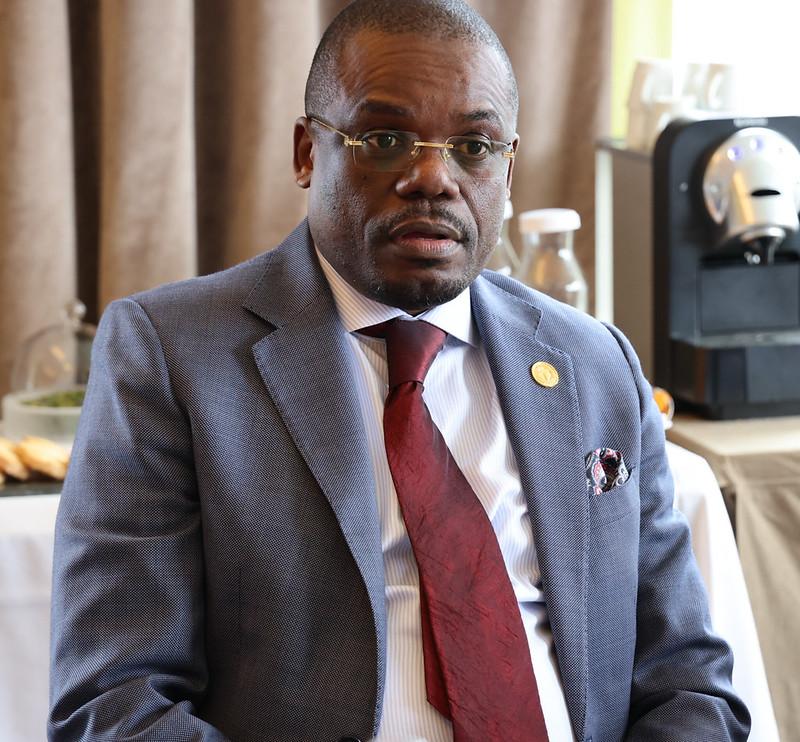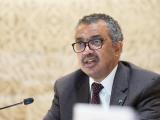The Africa Centres for Disease Control and Prevention (Africa CDC) today declared its first public health emergency of continental security (PHECS) amid a complex and worsening mpox situation in Africa, especially a surge in the Democratic Republic of the Congo that partly involves a novel clade 1b virus.
The declaration comes ahead of a meeting tomorrow of a World Health Organization (WHO) emergency committee, which will discuss if the situation warrants a public health emergency of international concern (PHEIC).
Committee finds strong case for recommendation
At a media briefing on Zoom today, Salim Abdool Karim, MBChB, PhD, a South African virologist and epidemiologist who chaired the Africa CDC mpox expert group discussions yesterday, said members had nine main points to make in its recommendations to the Africa WHO director-general.
He said the committee acknowledges that surveillance data are limited, leaving experts with only a partial picture of what's happening on the ground. However, Karim said there's clearly a high burden of illness, with cases already triple the number recorded when the World Health Organization (WHO) declared a public health emergency of international concern for mpox in 2022.
Case numbers have been accelerating over the past few weeks, and the upward trend is quite concerning, he said. The case-fatality rate—in the 3% to 4% range—is higher than expected and is considered too high, with fatalities concentrated in people with HIV.
Karim said experts are concerned about the spread to countries that haven't had mpox before, adding that almost all the spread is human-to-human. He noted that the group's other concerns include the need for better coordination among countries, limited vaccine access with a lack of a clear strategy on who should receive them, and a lack of diagnostic capacity. The group estimates that more than half of all cases are diagnosed just on a clinical basis.
The 16-member committee urged Africa CDC to develop a response plan, and its recommendation that the director-general declare a PHECS was unanimous.
In accepting the group's recommendations, Africa CDC Director-General Jean Kaseya, MD, MPH, said mpox spread in Africa is "a crisis that demands our collective action."
Global wake-up call
Following Africa CDC's PHECS declaration today, Nicole Lurie, MD, MPH, executive director of emergency preparedness and response with the Center for Epidemic Preparedness Innovations (CEPI), said the development is a wake-up call to the world that urgent action is needed to protect those most at risk and to stop the spread of the virus.
"Supporting the Africa CDC’s and Africa Taskforce for mpox coordination’s response to the multi-country outbreak is a priority for CEPI, and we are closely engaged with Africa CDC and WHO," she said in a Science Media Centre statement, noting that although more are studies on the vaccine in specific populations, immunization can't wait.
Supporting the Africa CDC’s and Africa Taskforce for mpox coordination’s response to the multi-country outbreak is a priority for CEPI.
CEPI is working with vaccine companies to find ways to scale up vaccination and is funding studies to assess immunogenicity in children and whether postexposure vaccination could blunt illness severity.
Latest WHO global picture
Meanwhile, ahead of tomorrow's WHO mpox emergency committee meeting, the agency yesterday released its latest monthly situation update, which covers the clade 1 viruses circulating in Africa and the clade 2 virus circulating globally.
Of 934 cases reported in June, more than half were reported in Africa, and, of those, most were reported by the DRC. Given limited lab capacity in rural areas, only 24% of clinically compatible cases have been tested, which underestimates the true disease burden.
Detailed transmission information isn't available for most cases in Africa, but modes appear to be diverse, including direct and indirect human-to-human transmission and, in some cases, zoonotic.
In DRC, burden in kids includes newborns
Separately, Save the Children yesterday warned that newborn babies as young as 2 weeks old are contracting mpox in the DRC due to overcrowding in hospitals.
The nonprofit said 70% of the DRC's nearly 15,000 cases involve children, 39% of them kids younger than 5 years old. It added that cases and deaths are more prevalent in children than adults. Children are four times more likely to die from their mpox infections, Save the Children noted.
Some healthcare centers in Goma, the capital of North Kivu province, are facing a patient intake 4,000% over capacity. An epidemiologist with the group said Save the Children has been caring for a baby boy for 4 weeks who became infected after he and his mother were forced to share a room with someone who had an undiagnosed mpox infection.





















